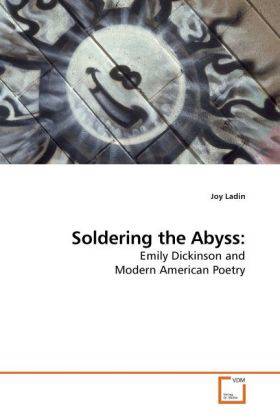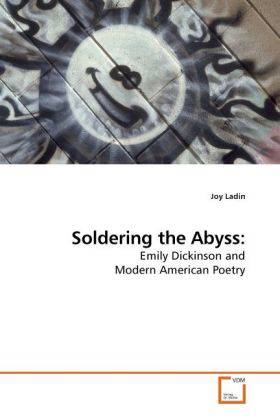
- Afhalen na 1 uur in een winkel met voorraad
- Gratis thuislevering in België vanaf € 30
- Ruim aanbod met 7 miljoen producten
- Afhalen na 1 uur in een winkel met voorraad
- Gratis thuislevering in België vanaf € 30
- Ruim aanbod met 7 miljoen producten
Zoeken
€ 67,45
+ 134 punten
Omschrijving
In the second decade of the twentieth century, poets from a country that had till then been regarded as a literary backwater reinvented poetry in English, pioneering poetic techniques and approaches to language that shaped and continue to shape poetry around the world. The names of these poets are famous - Eliot, Pound, Stevens, Moore, Williams, Frost - and their works long canonized, yet scholars continue to disagree about what common purpose or technique is at the root of their revolutionary "modernization" of poetry. "Soldering the Abyss" illuminates the roots of modern American poetry by examining their innovations in relation to their idiosyncratic predecessor, Emily Dickinson. Dickinson's poems, written half a century before, in the absence of most of the circumstances usually credited with giving rise to literary modernism, exhibit all of modern American poetry's signature innovations. Dickinson's combination of these innovations suggests a pre-twentieth century origin for modern American poetry: the epistemological instability of American public discourse.
Specificaties
Betrokkenen
- Auteur(s):
- Uitgeverij:
Inhoud
- Aantal bladzijden:
- 196
- Taal:
- Engels
Eigenschappen
- Productcode (EAN):
- 9783639158960
- Verschijningsdatum:
- 5/01/2010
- Uitvoering:
- Paperback
- Formaat:
- Trade paperback (VS)
- Afmetingen:
- 152 mm x 229 mm
- Gewicht:
- 294 g

Alleen bij Standaard Boekhandel
+ 134 punten op je klantenkaart van Standaard Boekhandel
Beoordelingen
We publiceren alleen reviews die voldoen aan de voorwaarden voor reviews. Bekijk onze voorwaarden voor reviews.











